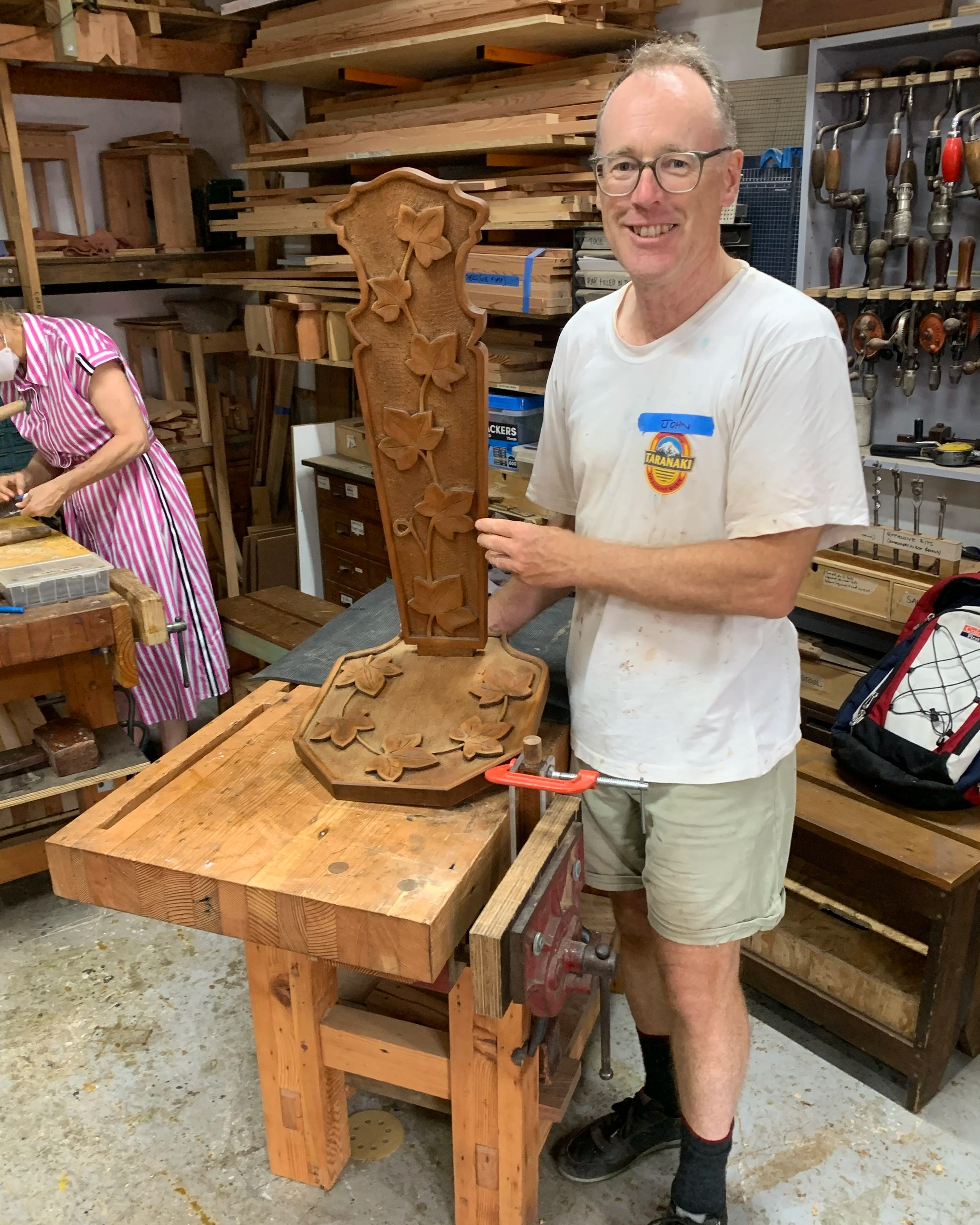Are hand tools or power tools better?
We have a lot of people coming into the shop or doing courses who ask us whether they should be investing in hand tools or power tools for their woodworking projects. Considering how pricey tools can get, it’s an important question when you’re thinking about starting out with woodworking and your budget can only stretch so far.
The argument for hand tools
Hand tools may seem slow or old fashioned, but there’s a lot of reasons why they still have a place in not only fine or bespoke woodworking, but commercial level carpentry and trade work too. We’ve put together a few reasons why hand tools are a great thing to invest in:
Easy to set up and use
Hand tools are great if you want to pick up a tool and start using it immediately. If you need to cut something to size, pare some timber away, drill a hole, or many other jobs, being able to get a tool out and get it ready to use straight away is a huge benefit.
Hand tools are often also easy to learn how to use, as they rely on a similar set of principles for use, and skills are transferable from using different tools.
Provides haptic feedback during use
One of the main reasons we love hand tools is because they give so much feedback while you’re using them! While planing a piece of timber it gives us a wealth of information about what the tool is doing, including the way the plane moves, the shavings it produces, the sound of the cutting edge, the resistance in your arms, and more.
Great for detail or fragile work
If you’re working on fine pieces or fragile timber, well sharpened and fine hand tools can often reduce the likelihood of tearout or damaging your work piece, and gives you more security that you are only removing the material that you mean to remove.
Low level of noise and dust
For a home workshop this can be a critical feature – hand tools produce much less dust and noise than many power tools, so much so that you can use them while in the same room as someone else and have less need for hearing or breathing protection.
Make sure to use the appropriate PPE even when using hand tools, such as wearing lung protection when sanding or producing wood dust, or hearing protection while making loud noises with hammers or other tools!
Injuries are not necessarily less likely, but can be much less serious
While hand tools are not “safer” than power tools, in that we often have our hands much closer to their sharpened edges than with machinery or power tools, it is much harder to do grievous damage to ourselves with hand tools than it is with machinery.
The argument for power tools
Work quickly and efficiently
Hand tools are wonderful to use, but can be very slow, especially for larger jobs. If you’ve ever squared and jointed a timber board by hand you’ll know it’s a great skill to have, but not one that you want to have to practice on every piece of wood you use, and having a power jointer and thicknesser is essential if you are doing woodwork on any scale or at any level of speed.
Physical strength is less important
While not a great deal of physical strength is required to use sharp hand tools, some is still required and this can be an issue if you are working on a larger project and doing more woodworking. Power tools can make a big difference as a motor takes a lot of this hard work out of the equation and allows you to work for longer without getting fatigued.
Repeat work easily once set up
Once you have your machinery and jigs set up, it’s very easy to repeat actions many times in an accurate and precise way. For example, when hand-cutting dovetails, each side has to be marked and cut precisely by hand, whereas to cut out dovetails with a table saw jig requires careful preparation and measuring, but then as many pieces as you need can be cut out one after the other quickly and precisely.
Repairs can be covered by warranty and easy to find spare parts
If down time where tools aren’t working would be a killer to your work, knowing that you can repair and replace your tools easily can be critical for your decision making.
So what wins out?
Obviously we’re big fans of hand tools at Among The Trees – all of our classes are hand tool based and we love how easy it is to restore old hand tools to a useable condition and get many more years out of them, but we also use machinery every day to help dress timber and manufacture timber products for our customers. As you probably figured out, there is no one right answer to this question – it really depends on what you’re working on, how long you have, and what you enjoy doing!
If you’d like to learn more about using hand tools, we recommend doing one of our many courses. They cover a wide range of hand tools and skills, and no previous skill or knowledge is required! You can find out more about our courses here.






